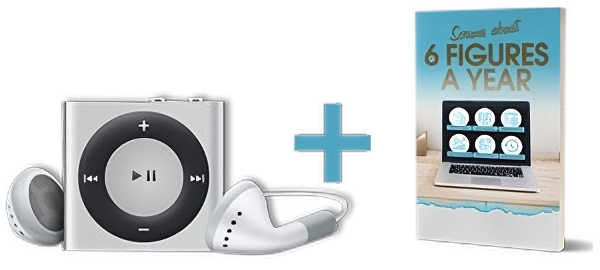Bitcoin for Newbies, or…
“What’s All This Bitcoin Fuss, Anyway?”
A boy asks his Bitcoin investing father for $10.00 of Bitcoin Currency.
The father asks, “9.79? What do you need $11.64 for?”
Yes, the value of Bitcoin can change nearly that fast.
So what exactly is Bitcoin, and why is its value going through the roof?
Bitcoin was invented by an unknown person or group of people, under the name of Satoshi Nakamoto, and released as open-source software in 2009.
Bitcoin is a cryptocurrency and worldwide payment system.
And it’s also the first decentralized digital currency. This means the system works without a central repository or single administrator.
The system is peer-to-peer — transactions take place between users directly and without intermediaries.
The transactions are verified by network nodes, and then recorded in a publicly distributed ledger called a blockchain.
Bitcoins are created as a reward for a process known as mining, which we’ll cover in a moment.
And of course Bitcoins can be exchanged for other currencies, products and services.
You can also hold Bitcoin as an investment, which is how so many Bitcoin fortunes have already been made.
The most famous example of this is the “Bitcoin Pizza.” On 22 May 2010, Laszlo Hanyecz made the first real-world transaction by buying two pizzas from Papa Johns in Jacksonville, Florida, for 10,000 Bitcoin (BTC.)
In May of 2017, Business Insider reported that those same 10,000 Bitcoins were worth $20 million (15.4 million pounds)
Pretty amazing, right?
Fast forward to November 28th, and those same 10,000 Bitcoins are now worth $100 million.
That’s $50 million per pizza.
At the time of the pizza transaction, you can imagine that Laszlo was pretty psyched. He’d just gotten two pizzas for some ‘play money.’ Score!
Fast forward and Laszlo is likely kicking himself black and blue over having purchased what will likely be the costliest pizzas ever — past, present and future.
Now I know what you might be thinking: “That’s probably as high as Bitcoin is going to go, right?”
Maybe. Maybe not. People have been saying for months that it can’t go any higher, and then it does.
Some say Bitcoin is like the stock market, only greatly sped up. Yes, it might go down now and then. But it will self-correct and head back up again.
They believe this because with world events being so volatile, and people having less and less faith in traditional currency, it’s bound to continue to increase in value.
Maybe so.
Let’s dig a little deeper:
Bitcoin Units
One unit of account of the Bitcoin system is a Bitcoin.
A Satoshi, is the smallest amount within Bitcoin, representing 0.00000001 Bitcoin, or one hundred millionth of a Bitcoin.
A Millibitcoin equals 0.001 Bitcoin, or one thousandth of a Bitcoin or 100,000 Satoshis.
On August 1, 2017, Bitcoin split into two derivative digital currencies, the classic Bitcoin (BTC) and a hard fork, Bitcoin Cash (BCH).
Bitcoin Wallets
Wallets are actually software programs where Bitcoins are stored. It’s sort of like a Bitcoin bank account, only without the bank. You can send, receive and store Bitcoins in your wallet.
Naturally, Bitcoins are virtual, so they aren’t really in your wallet. Rather, it’s a way of keeping track of who owns what.
There is a private key or secret number for every Bitcoin address. Those are saved in the Bitcoin wallet of the person who owns the balance. Confusing? A little bit, until you actually use a wallet and see how it works.
There are two main types of wallets — a software wallet is one that you install on your own computer or mobile device. You are in complete control of your coins with a software wallet, but you’re also responsible for installation, security and maintaining the wallet yourself.
That’s why a lot of people choose a web wallet, or hosted wallet.
Because a third party maintains the wallet, it’s much easier to use. But you’re also having to trust the provider to maintain high levels of security to protect your coins.
If you are a beginner with Bitcoin, we recommend you try one of the following wallets:
Coinbase — a web wallet that is highly popular and easy to use.
Blockchain — one of the quickest and easiest Bitcoin web wallets.
Electrum — a highly secure wallet you install yourself.
Bitcoin Exchanges
Okay, you’ve got a wallet. Now how do you get your first Bitcoins?
Usually it’s through a Bitcoin exchange. You can use a credit or debit card to make your first purchase, but we’d like to offer a word of caution:
Not all Bitcoin Exchanges are legitimate. Some pop up out of nowhere, take people’s money and disappear.
Naturally, you want to use an Exchange that’s been around for awhile — one you can trust.
Here are three Exchanges that have proven track records:
Coinbase
Coinmama
BitPanda
Let’s talk about Bitcoin Mining
We mentioned earlier that you can get Bitcoins through mining.
According to Investopedia, Bitcoin mining is the process by which transactions are verified and added to the public ledger, known as the block chain, and also the means through which new bitcoin are released.
Anyone with access to the internet and suitable hardware can participate in mining.
But… it’s not as easy as it sounds. And the bill for equipment and the electricity to run that equipment and keep it cool can get expensive.
Bottom line: You’ve got to know what you’re doing. You can go online and spend a few days researching this if you’re interested.
Or you can let someone else do the mining for you. True, you won’t make as much Bitcoin, but you also won’t be paying for equipment and spending your time making sure everything is running properly, either.
Cloud Mining
With cloud mining, you purchase a mining contract in someone else’s mining operation. You’re helping them purchase machines, maintain them and so forth, and for that you get to share in the profits.
Depending on the contract you choose, your investment can be large or small, long term or short term.
You pay the upfront cost in Bitcoins, and sometimes they even take credit cards. Then they take care of everything.
If everything goes as planned, you receive a continuous influx of Bitcoins into your personal wallet.
Some mining contract providers charge fees thoughout the contract. Others only charge fees up front. So be sure to calculate these in to see what your true return is.
It is possible for a mining contract provider to go bust, so this is not risk free. But it can be a great way to increase your stash of bitcoins.
Proven Cloud Mining Companies
While this list is by no means extensive, it does give you a good place to start looking for your cloud mining company:
Bitcoin Pool https://pool.bitcoin.com
EOBot https://www.EOBot.com
Genesis Mining https://www.genesis-mining.com
Hashflare http://hashflare.io
Hashnest https://hashnest.com
MinerGate https://minergate.com/
TeraBox https://www.TeraBox.me
One More Thing
If you remember back in the day, maybe about 20 years ago, there were a multitude of search engines. And then along came one search engine that initially used all the other search engines to find results. By aggregating the results of the other search engines, they were better able to find good results.
That little search engine was Google. Of course, they haven’t relied on other search engines for a very long time. But in the beginning their system worked better because they used the aggregate model.
There is a cloud mining contracts aggregator that works along the same line. Instead of doing their own mining, they look for the best results from other mining companies, and put together packages of those contracts for their customers.
The name of that cloud mining contracts aggregator is MINEX, and you can find them here.
The Big Questions
Is Bitcoin going to continue to rise?
And if so, how high is it going to go?
I’m afraid I don’t have the answers.
But I do know that a small investment made now does have the potential for a nice payoff later.
Never invest more than you can afford to lose. Ever. And do your diligence and research before investing with anyone, including any company mentioned in this article.
The term, buyer beware- does indeed fit with anything and everything Bitcoin.
But who knows — one day you might be telling your kids how you invested in Bitcoin in early 2018, and retired the next year.
Anything is possible.
Claim Your Free MP3 And PDF Training: The 3-Part Plan To Topping $100,000 Per Year In Profit
Enter your name and email address below to receive a new lesson delivered to your inbox once a week. Your first lesson will be delivered immediately.

Privacy Policy : We value your privacy. You can unsubscribe from receiving future emails with 1 click at any time.
















